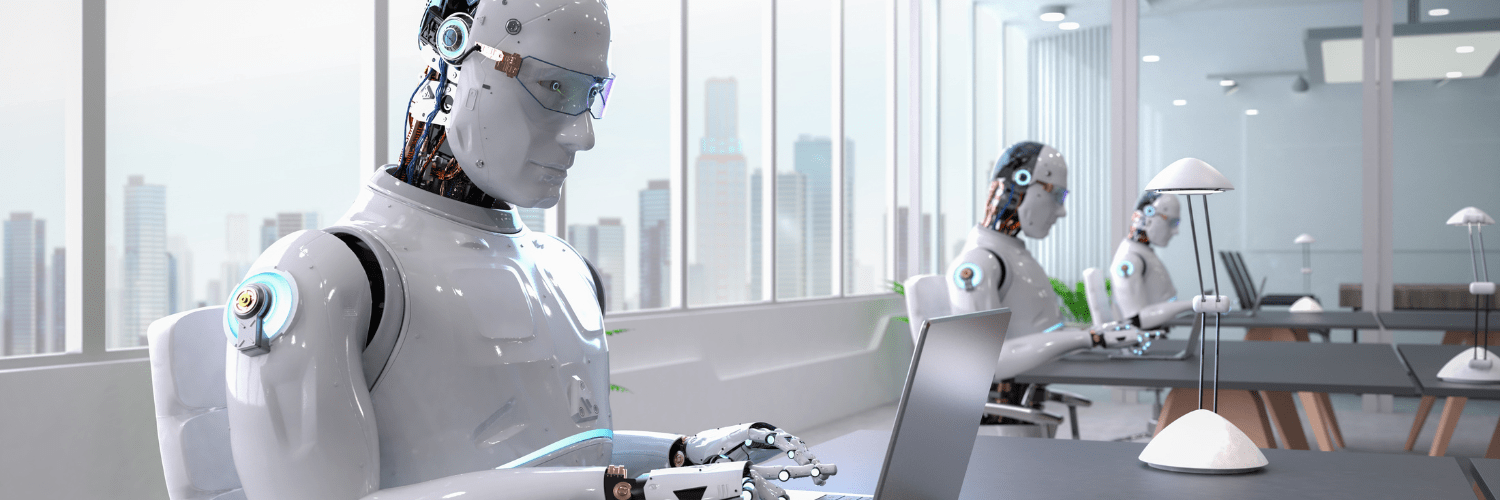
Digital marketing has become an integral part of businesses worldwide, and with the emergence of artificial intelligence (AI), there has been a lot of speculation about the future of digital marketing. Will AI replace digital marketing? In this blog, we’ll take a closer look at the topic and explore the various ways in which AI is being used in digital marketing.
Before we dive into the topic, let’s first define what AI and digital marketing are. AI refers to the use of computer systems to perform tasks that would normally require human intelligence, such as speech recognition, decision-making, and language translation. Digital marketing, on the other hand, is the use of digital channels, such as social media, email, and search engines, to promote a brand or product.
AI is being used in digital marketing in various ways, including:
1. Personalization – AI algorithms can analyze consumer behavior and preferences to create personalized marketing messages and offers.
2. Chatbots – AI-powered chatbots can engage with customers 24/7, providing them with instant support and guidance.
3. Predictive Analytics – AI algorithms can analyze big data to predict consumer behavior, allowing marketers to make more informed decisions about their campaigns.
4. Content Creation – AI-powered tools can create content such as product descriptions and social media posts, saving marketers time and effort.
While AI is certainly changing the digital marketing landscape, it’s unlikely that it will completely replace human marketers. Here’s why:
1. Creativity – AI can analyze data and make predictions, but it can’t match the creativity and intuition of human marketers when it comes to developing innovative campaigns and messaging.
2. Emotional Connection – Consumers connect with brands on an emotional level, and AI is not yet capable of creating that emotional connection that human marketers can.
3. Human Touch – AI can provide support and guidance, but it can’t replace the human touch that customers value when interacting with brands.
1. Integration for Efficiency: AI is a collaborator, not a replacement. Human marketers use AI tools to streamline processes, integrating data-driven decisions with human creativity for optimal results.
2. Adapting to Trends: AI’s real-time data analysis empowers marketers to swiftly adapt to changing trends, tailoring strategies to meet evolving consumer demands and stay ahead of the curve.
3. Ethical Integration: As AI embeds in digital marketing, ethical considerations arise. Human marketers navigate this delicate balance, ensuring transparent, respectful data usage in compliance with evolving regulations.
Swiggy, a popular food delivery platform in India, uses AI to personalise food recommendations for its users. The AI-powered recommendation engine analyses the user’s past orders, search history, location, time of day, weather, and popularity of dishes to make relevant suggestions.
Additionally, Swiggy uses AI to predict delivery time by taking into account factors such as traffic, distance, and restaurant preparation time. Despite the extensive use of AI, the human factor is crucial in Swiggy’s marketing strategy.
The marketing team aims to humanise the brand and connect with the audience emotionally through engaging content and social media campaigns. The combination of AI’s analytical capabilities and human creativity has allowed Swiggy to become one of the leading food delivery platforms in India.
In the digital era, AI and human creativity unite, driving the future of marketing. This collaboration enhances efficiency while preserving the crucial human touch in campaigns. Businesses thrive by embracing both AI’s capabilities and human insights. Together, they forge a future where innovation and connection shape the evolving digital marketing landscape. Stay tuned for the ongoing journey of AI and digital marketing.
If you want to know more about digital marketing you can check out our blog post for further details